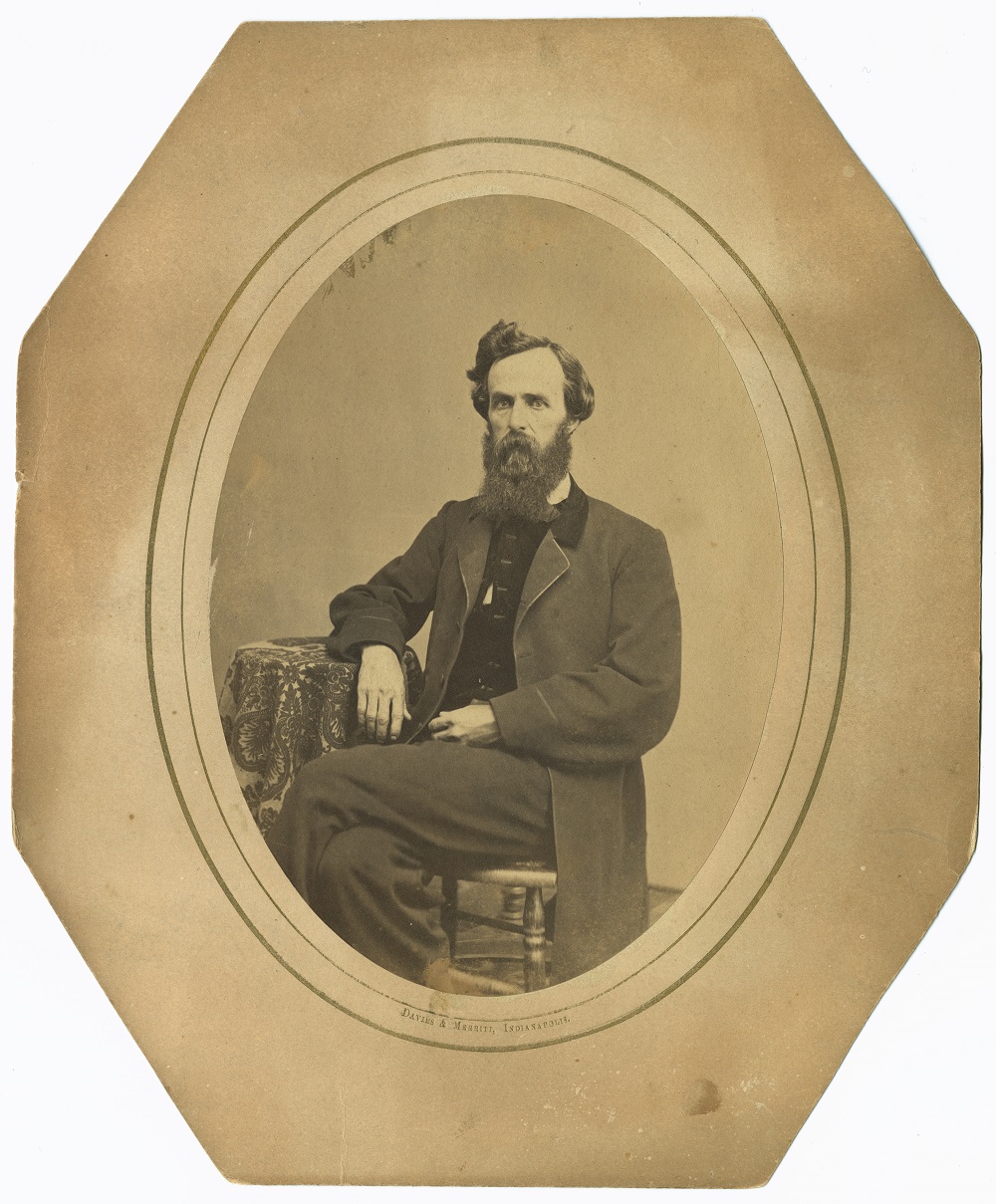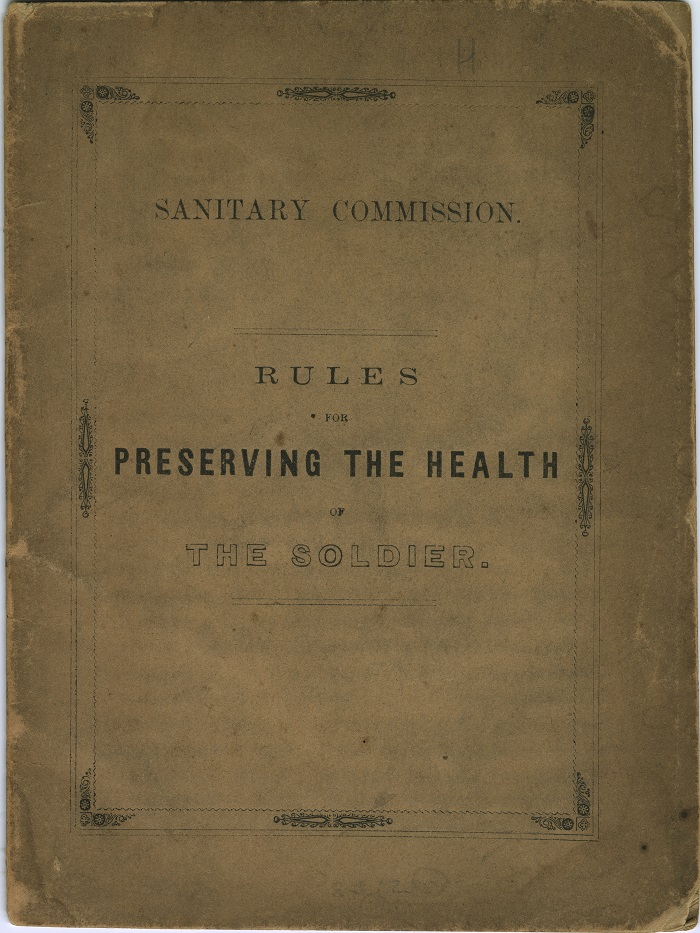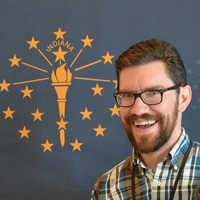
Purchase Tickets
From Civil War to Indianapolis Parks, George Merritt’s Family Made an Impact
August 18, 2022

A collection of materials from the Merritt family of Indianapolis, recently added to our collections, embodies the wide variety of activities in which they engaged. From early industrial success to service during the Civil War, parks, schools, women’s suffrage, elder care, and even an 8-year-old’s entrepreneurial spirit, it’s all here.
George Merritt, once termed “the father of Indianapolis parks,” came to the city with his wife Paulina in 1856. He and a business partner established a woolens factory. When Southern states seceded and armed conflict commenced, George’s Quaker ancestry prohibited him from joining the Union Army. But much as later Quakers would form the American Friends Service Committee to aid the sick and wounded during World War I, George joined the Indiana Sanitary Commission. This organization, the local arm of a wider effort across the North, applied up-to-date scientific preventative sanitary measures and also provided relief to the sick and wounded. Similar aid in earlier wars had only addressed the latter. The Sanitary Commission provided provisions to care for the soldiers’ health, not just their sickness or wounds.

This pamphlet from our printed collections details the efforts by the U.S. Sanitary Commission to keep Union soldiers healthy.
Indiana Governor O. P. Morton sent George to Gen. William Tecumseh Sherman on May 11, 1864. By the time George arrived “in the field,” the Battle of Resaca was probably underway. Resaca was one of the bloodiest of the western theatre, and George spent the next couple of weeks getting nurses and supplies where they needed to go and transporting the wounded to Chattanooga. The collection includes the letter of introduction Gov. Morton wrote to Sherman on George’s behalf, as well as several letters between George and his wife Paulina during June 1864.
The realities of war and the sacrifices of the soldiers struck George when he was asked to help a mortally wounded man write a final letter home. That night, George wrote to his own wife, “I felt so very, very small beside him, and before I had done pening [sic] down his words of advice about raising their “dear little boy” and his hopes of “meeting them both in Heaven” I felt how little, oh how insignificant was all I had done for my country compared with his sacrifice.”
Further letters, including one with a hand-drawn map, detail some of the troop movements and skirmishes during June. But George would not go to Atlanta once Sherman finally captured it on September 2. He was assigned to Nashville, Tennessee, on July 2, 1864, and there the war letters in the collection stop.
These letters and much more about the Merritts can be found in the Merritt Family Collection (M1498). Check back later for another blog post about George and Paulina’s son Ernest Merritt and the newspaper he created when he was a boy in the 1870s.









